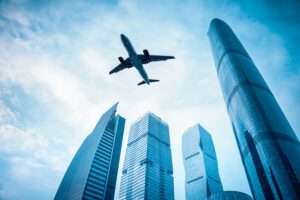Southeast Asia accounts for nearly 8% of global jet fuel demand and thus plays a crucial role in contributing to the global sustainable aviation fuel (SAF) supply, which is essential for achieving global aviation decarbonisation goals. Influenced by international policy frameworks such as the International Civil Aviation Organisation’s Carbon Offsetting and Reduction Scheme for International Aviation (ICAO CORSIA), several ASEAN member states such as Singapore, Indonesia, Malaysia, Thailand and the Philippines have developed or are exploring SAF policies and production, leveraging the region’s abundant agricultural resources. SAF demand is growing.
Forty-three international airlines are committed to using 13 million tonnes of SAF by 2030 to meet their regulatory and voluntary targets, and the corporate sector is also showing interest in purchasing SAF to reduce business and cargo travel (Scope 3) emissions through book and claim approaches.
This growing demand is mostly linked to SAF’s sustainability performance, with a preference for fuels certified by schemes like the RSB.
Developing local feedstock and SAF production in Southeast Asia will...
To continue reading this article you need to be logged in.
Register for free or log in
here.














